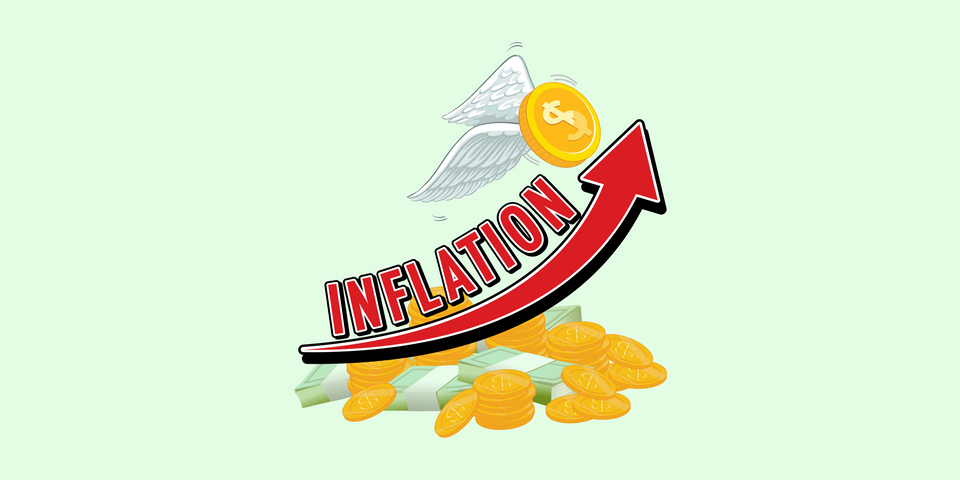Navigating Investments in India: The Impact of Inflation and Interest Rates

Inflation and interest rates are integral components of the Indian economy that have a profound impact on investments. As an investor, comprehending the dynamics of these economic factors is crucial for making informed decisions and safeguarding your financial future. In this blog, we will explore the concepts of inflation and interest rates in India, analyze their effects on investments, and provide actionable strategies to mitigate risks and optimize returns.
Understanding Inflation and Interest Rates in India
Inflation in India
Inflation is the sustained increase in the general price level of goods and services, resulting in the reduction of purchasing power. Measured by the Consumer Price Index (CPI) and Wholesale Price Index (WPI), inflation affects the cost of living for individuals and influences the overall economic climate.
Interest Rates in India
Interest rates represent the cost of borrowing or the return on investment. The Reserve Bank of India (RBI) is responsible for setting key interest rates, such as the repo rate and the reverse repo rate, to regulate the money supply and control inflation.
The Relationship between Inflation and Interest Rates
Inflation and interest rates share a reciprocal relationship in the Indian economy. When inflation rises, the RBI may raise interest rates to curb consumer spending and control price levels. Conversely, during periods of low inflation, the RBI may lower interest rates to stimulate economic growth and encourage borrowing and investment.
Impact on Investments
- Fixed-Income Investments: Inflation poses a significant risk to fixed-income investments, such as bonds and fixed deposits. If the interest rate earned from these investments does not outpace inflation, the real value of returns diminishes over time, resulting in reduced purchasing power.
- Equities: Inflation can impact the profitability of companies. However, certain sectors, such as commodities and infrastructure, may benefit from rising prices and generate favorable returns during inflationary periods.
- Real Estate: Inflation can lead to an increase in property prices, making real estate a potential hedge against inflation. However, fluctuations in interest rates can impact the affordability of home loans and influence demand in the real estate market.
- Gold and Commodities: Historically, during periods of high inflation, gold and certain commodities tend to perform well, as investors seek refuge in tangible assets to preserve their wealth.
- Cash and Savings: Holding cash or keeping money in low-yield savings accounts during inflationary times can erode its value over time, as the interest earned may not keep pace with rising prices.
What You Can Do About It
- Diversify Your Portfolio: Diversification is key to reducing risk and optimizing returns. Invest in a mix of asset classes, including equities, fixed-income securities, real estate, and commodities, to balance the impact of inflation and interest rate fluctuations.
- Consider Inflation-Indexed Investments: In India, certain investment instruments, such as inflation-indexed bonds, are designed to provide returns that are adjusted for inflation, protecting your capital from erosion.
- Stay Informed: Keep a close eye on economic indicators, government policies, and RBI announcements. Stay informed about the prevailing inflation rates and adjust your investment strategy accordingly.
- Consider Floating-Rate Instruments: Floating-rate instruments, like floating-rate bonds or mutual funds, offer variable interest rates that can rise with inflation, potentially providing better returns in times of rising prices.
- Seek Professional Advice: If you find it challenging to navigate the complexities of inflation and interest rates, consult a financial advisor who can tailor an investment plan suited to your financial goals and risk appetite.
Conclusion
Inflation and interest rates are crucial factors that impact investments in India. While inflation erodes purchasing power, interest rates influence the cost of borrowing and the attractiveness of investment options. As an investor, understanding this interplay can help you make informed decisions and protect your wealth from the erosive effects of inflation. By diversifying your portfolio, staying informed, and seeking professional advice, you can better navigate the dynamic economic landscape and position yourself for long-term financial success.
FAQ
1. What is inflation, and how is it measured in India?
Inflation is the sustained increase in the general price level of goods and services, which reduces purchasing power. In India, it is measured by the Consumer Price Index (CPI) and Wholesale Price Index (WPI).
2. What are interest rates, and who sets them in India?
Interest rates represent the cost of borrowing or the return on investment. In India, the Reserve Bank of India (RBI) sets key interest rates, such as the repo rate and the reverse repo rate, to regulate the money supply and control inflation.
3. How do inflation and interest rates affect each other?
Inflation and interest rates share a reciprocal relationship. When inflation rises, the RBI may increase interest rates to curb consumer spending and control price levels. Conversely, during periods of low inflation, the RBI may lower interest rates to stimulate economic growth and encourage borrowing and investment.
4. How does inflation impact fixed-income investments?
Inflation poses a significant risk to fixed-income investments, such as bonds and fixed deposits. If the interest rate earned from these investments does not outpace inflation, the real value of returns diminishes over time, resulting in reduced purchasing power.
5. What is the impact of inflation on equities?
Inflation can impact the profitability of companies. However, certain sectors, such as commodities and infrastructure, may benefit from rising prices and generate favorable returns during inflationary periods.
6. How does inflation affect real estate investments?
Inflation can lead to an increase in property prices, making real estate a potential hedge against inflation. However, fluctuations in interest rates can impact the affordability of home loans and influence demand in the real estate market.
7. What role do gold and commodities play during inflation?
Historically, during periods of high inflation, gold and certain commodities tend to perform well, as investors seek refuge in tangible assets to preserve their wealth.
8. How does holding cash or savings get affected by inflation?
Holding cash or keeping money in low-yield savings accounts during inflationary times can erode its value over time, as the interest earned may not keep pace with rising prices.
9. What strategies can investors use to mitigate the impact of inflation and interest rates?
- Diversify Your Portfolio: Invest in a mix of asset classes, including equities, fixed-income securities, real estate, and commodities.
- Consider Inflation-Indexed Investments: Invest in instruments designed to provide returns adjusted for inflation, such as inflation-indexed bonds.
- Stay Informed: Keep track of economic indicators, government policies, and RBI announcements to adjust your investment strategy accordingly.
- Consider Floating-Rate Instruments: Invest in floating-rate bonds or mutual funds that offer variable interest rates, potentially providing better returns during rising inflation.
- Seek Professional Advice: Consult a financial advisor to tailor an investment plan suited to your financial goals and risk appetite.
10. Why is it important to stay informed about inflation and interest rates?
Staying informed about inflation and interest rates helps investors make informed decisions, adjust their investment strategies, and protect their wealth from the erosive effects of inflation and fluctuating interest rates.
11. How can professional advice help in managing investments during inflation and interest rate fluctuations?
A financial advisor can provide expert guidance on navigating the complexities of inflation and interest rates, tailoring an investment plan to suit your financial goals and risk tolerance, and helping you make informed decisions for long-term financial success.






Member discussion